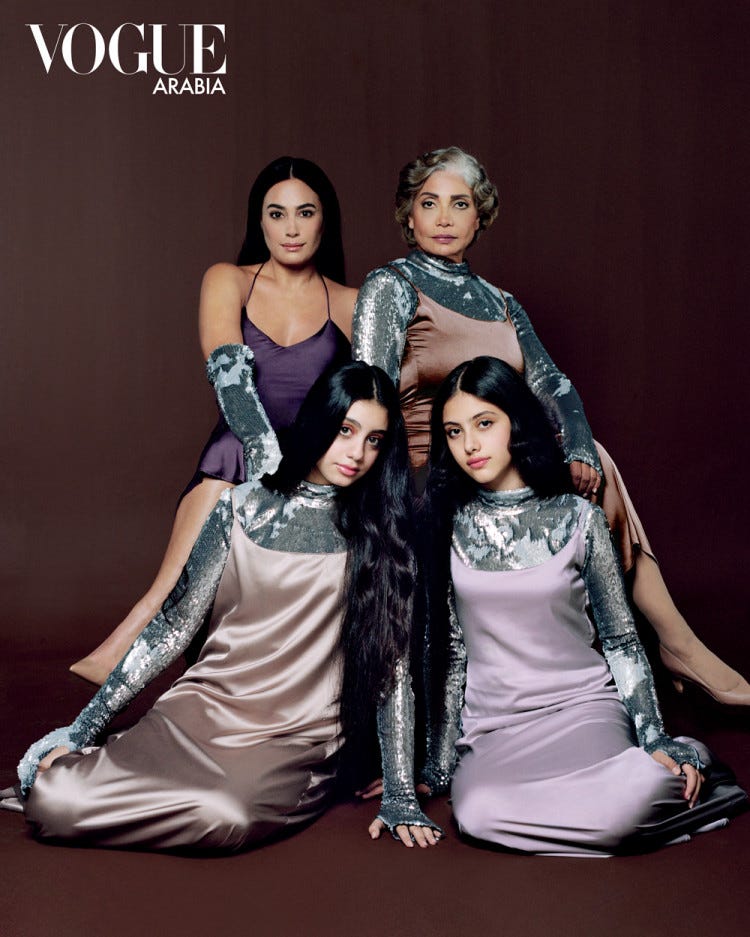I’m pretty late to jump on this bandwagon because anyone and everyone I knew of on Instagram who was learning Masri (Egyptian Arabic) was recommending Finding Ola since its release on Netflix in 2022. Long story short, Finding Ola is about an upper middle class woman in Egypt whose husband asks her for a divorce in the first episode. It is the classic story of a woman finding herself while raising two kids after her husband, Hisham, leaves her— but the fact that the story is set in Egypt, a stereotypically conservative country with all the societal ills that pit women and men against each other, makes this dramedy more interesting.
The first thing that struck me about the show is how it confronts our ignorance and exoticism: there’s nothing too unfamiliar except for the language. Big SUVs, the lavish houses, and Gen Z and Gen Alpha on the phone throwing around terms in perfect English (the whole cast is clearly fluent in English and/or French). The show also mentions terms familiar to millennials like when one of Ola’s kids refers to her parents divorce as “conscious uncoupling”, a term coined by Gwyneth Paltrow in 2014 when she and her husband Chris Martin announced their divorce to the world. It made me feel welcome! The show seemed to say “hey, we’ve been here, we’re cool, join us!

▢ Healthy Conversations Between Women
Another thing that struck me about the show was the portrayal of the relationships between women that in reality tend to rot in the stifling conditions of conservative cultures and their rigid gender roles for men and women, but Finding Ola aims to show something different while still acknowledging the tensions that have always existed such as in the tenuous relationship between Hisham’s mother and Ola. For today’s post, I just want to focus on the key female relationships because, though the show masterfully comments on different relationship dynamics, I think the show is first and foremost a feminist gem in that it honors female relationships while not stepping over the men.
▲ Ola and her BFF Nesrine: “You shut me out because of your husband.”
When Hisham and Ola get divorced, Ola finds shelter in her BFF Nesrine whom, we find out, was shut out of her life because Hisham didn’t like Nesrine’s influence on his wife. While Ola is sensible wife material, Nesrine is wild and independent and more than happy to tell men her opinion. In many parts of the world, this is not good much less cool. In the show, they become friends again, but not without Nesrine first telling her how she felt when she was shut out, but that she was happy to have her friend back and of course she would help her out of the divorce. They have honest exchanges that are sweet but not saccharine. You have to see it to understand what I mean.
▲ Ola and her mother Sohier: “What did you do?”
When Ola tells her mother that her husband asked for a divorce, her mother says the words that us girls are far too familiar with: “What did you do?” For most of the show, she tries to convince her daughter of different ways to “get her husband” back for the sake of her family and her good name. Her mother is definitely an echo of the way previous generations were raised where the woman is taught that everything is their fault and that holding the family together means to swallow your pride or have none whatsoever. Their dialogue tries to express what many of us wish we’d been able to say to our parents but never did and vice versa.
▲ Sohier and Nesrine: “I misjudged you.”
The scene where these two talk took me by surprise, but I am happy the writers included it because it seemed to show the old conservative woman and the new modern independent woman interact. It was not overly sweet and mushy, but it expresses feelings that the older female generation kept bottled up about childrearing and how to move in life and why women like Nesrine are judged even despite them being good friends and daughters. Though subtle, I think that Nesrine also represented the younger generation judgement of the older generation as one that does not have any feelings or care for their children. The scene feels like an apology and a coming together of two archetypes that often misjudge each other.
There is so much more that I want to say about the show because there are so many layers to peel back such as the conversations between Hisham and Ola as a divorced couple that shine a light on the notion that men are allowed more freedoms after a divorce than women (at least in the MENA region and more specifically Egypt, though I think women in the West may feel similarly). There are also nuances worth discussing about Hisham’s interactions with his daughter, his girlfriend, and more, but for the sake of space I will leave it here. And the younger cast? Those kids have a bright future. For more of my unfiltered thoughts on this TV show, feel free to listen to the audio commentary!
Notable reviews
https://egyptianstreets.com/2022/02/06/netflixs-finding-ola-explores-self-discovery-and-life-after-divorce-review/
https://en.vogue.me/culture/hend-sabri-finding-ola-netflix-cast-interview-sawsan-badr-yasmina-al-abd-aisel-ramzy/
https://en.vogue.me/video/hend-sabri-women-rights-vogue-arabia-september-2020-cover/






Share this post